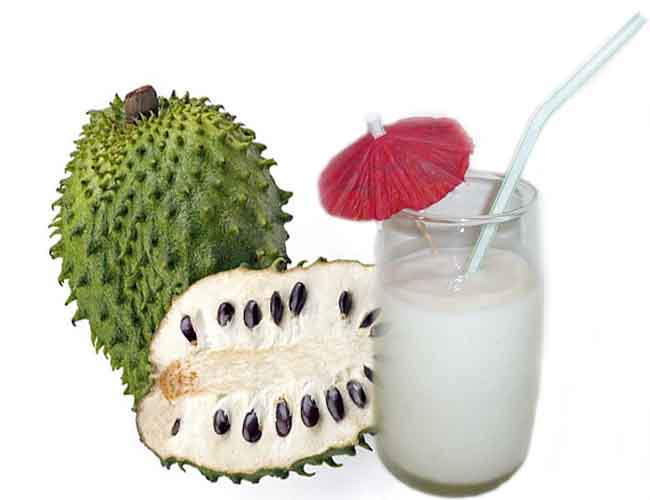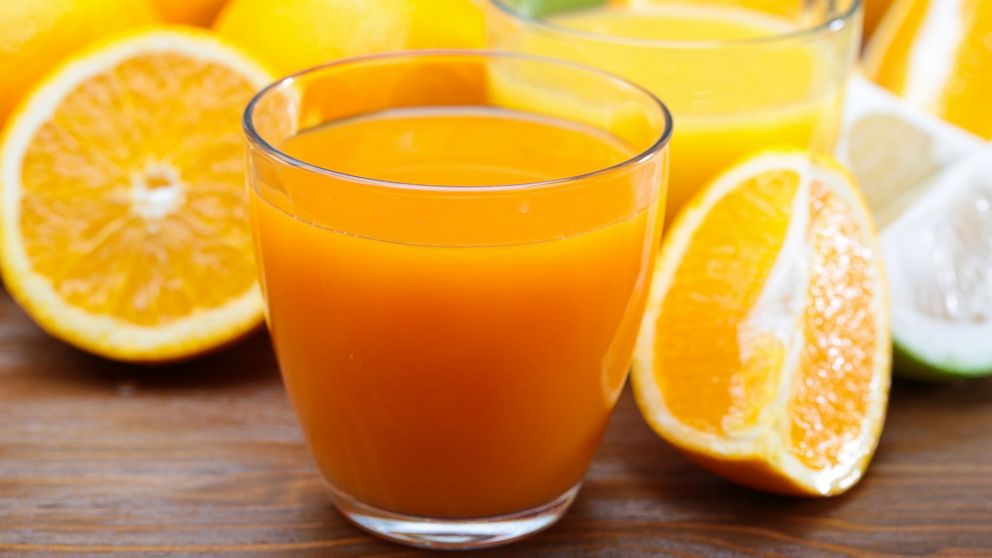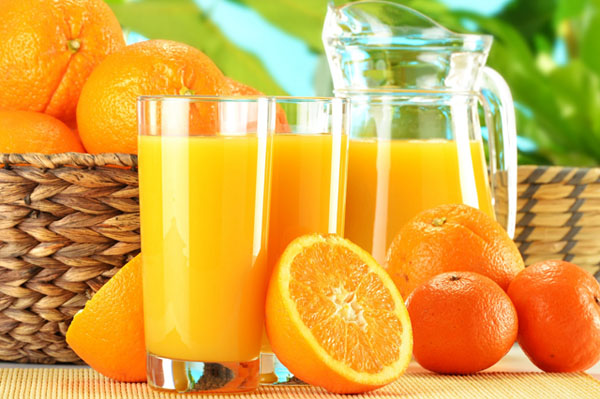1. Promotes intestinal health:
Passion fruit seeds are generally abundant with insoluble dietary fiber (64.1 grams per 100 grams)1. Chau, Huang, and Chang (2005) have recommended that the passion fruit seeds’ insoluble fiber may provide an efficient functional component to enhance intestinal function as well as health2. They discovered that including passion fruit seeds’ insoluble fiber to the fiber-free diet might boost the intestinal amylase action and lower the caecal pH as well as caecal ammonia content. Amylase is a crucial enzyme required to transform complex sugars directly into simple sugars throughout digestion of food. A decline in caecal pH as well as caecal ammonia in return assists equilibrium bacteria within the intestines as well as possibly decreases the chance of tumors within the colon. In addition, insoluble fiber assists encourage regular bowel movement and stop bowel problems as well as hemorrhoids. It may also help carry harmful toxins out from the entire body.
2. Cardiovascular benefits:
Sano, Sugiyama, Ito, Katano, as well as Ishihata (2011) researched the vasorelaxing results of the main polyphenols present in passion fruit seeds. Vasorelaxation refers back to the extending of blood vessels as a result of relaxation of smooth muscle cells inside the blood vessel walls. This particular extending of blood vessels results in a reduction in vascular stress that is essential for a proper coronary heart. The research workers discovered that both equally piceatannol as well as scirpusin B provided potent vaso relaxant effects in rat aortas3 (aorta may be the the massive artery which carries oxygen-rich blood from the heart). Whilst both these substances provided cardiovascular health advantages, scirpusin B applied a larger vasorelaxant impact.
3. Asthma attack:
A current scientific study stated that passion fruit is an extremely powerful remedy for asthma victims. The peel includes a group of substances which includes chemicals, acids and several various other ingredients which can supply a little bit of alleviation to the asthma sufferers all over the place.
It really is being setup like a non-toxic option to medicines. A nutritious health supplement can easily battle the problem in inhaling and exhaling as well as coughing gone through by millions due to bronchial asthma.
Research workers from the University of Arizona as well as Mashhad Medical University in Iran had taken removes of Passion fruit peels and created them into natural powder. They examined it in several asthma victims in the United States Of America as well as Iran for 4 weeks. The sufferers who had been provided the passion fruit powder experienced a lot less than individuals who got placebo. The skin of the passion fruit is made up of a few main acids as well as chemical compounds that might help to relieve high blood pressure and lower blood pressure level. Moreover, it is additionally abundant with anti-oxidants, and it is considered to be very therapeutic for the heart. That’s the reason why it may relieve the signs and symptoms of asthma. The fruit’s skin also offers higher quantities of flavonoids which behave as natural antihistamines. It really is just like the most widely used cure for hay fever as well as allergic reactions within pills and medicines.
4. Treats Insomnia:
Sleeplessness is seen as an an long-term lack of ability to sleep. Insomniacs possibly usually do not sleep at all or even just sleep for brief time periods. Insomnia is related to cardiovascular disease as well as an elevated chance of death because of heart failure. A survey released within the June 2009 issue of “Sleep” reports that when you’re struggling with insomnia, you might be in a high-risk of creating a higher systolic blood pressure level throughout the evening as well as irregular blood pressure level readings throughout the day.
Passion teas are usually utilized like a moderate sedative which causes sleep, Phytochemicals.info states. This particular sedative effect permits insomniacs to acquire a sound night of sleep. As soon as a appropriate sleep pattern has created, your blood pressure level need to go back to regular. However, you should always seek advice from a doctor just before making use of any kind of herbal health supplement, which includes passion fruit tea.
Folk medicine has got traditionally utilized passion fruit flower like a natural sleep aid. A survey released in “Phytotherapy Research” examined the sedative results of passion fruit flower extract. The research workers did notice a “nonspecific central nervous system depressant effect.” Additionally they observed a possible poisoning to human beings. A survey simply by French scientists demonstrated sedative effects on the actions of mice. The action level of the mice, calculated by quantity of rears as well as steps taken, dropped whenever they obtained an extract of passion fruit flower.
5. Kills Cancer:
The juice yet mostly the leaves of passion fruit include the alkaloids, which includes Harman, which has blood pressure level reducing, sedative as well as antispasmodic action. The passion fruit foliage is utilized in numerous nations around the world as medications.
Research workers in the University of Florida have discovered that yellow passion fruit extracts can easily kill cancer cells within vitro. The phytochemicals which can be liable for this particular anti-cancer effect usually are carotenoids as well as polyphenols.
A 2007 screen of Brazilian plants discovered no cytotoxic action towards human MCF-7 breast cancer cells simply by the passion fruit extracts analyzed. The prevalent fatty acid within passion fruit seeds is linoleic acid (composed of roughly 70% of the fatty acid content); the seeds in addition consist of several oleic, palmitic, stearic, as well as alpha-linolenic acids. Additional factors apart, this particular fatty acid profile implies that the seeds could be more prone to encourage breast cancer rather than to avoid or even control it. Whilst passion fruit has revealed anti-oxidant action, it’s not remarkable when compared with that of various other fruits considered to be connected with decreased breast cancer chance, just like strawberries as well as grapes. A lot more research is required to figure out the possible impact of eating passion fruit on breast cancer danger as well as survival.
Passion fruit is shown to have got anti-oxidant as well as anti-fungal qualities. Passion fruit seed fiber has been proven to be efficient in enhancing intestinal function as well as health and might help decrease cholesterol levels. Purple passion fruit extract has been proven to decrease anxiety-related behaviors within laboratory rats without interfering with memory process. An initial screen of 1,220 Brazilian rain forest plant extracts from 352 plants discovered that passion-flower plant family extracts were one of the few which shown cytotoxicity towards human prostate cancer cells.
6. Reduces Anxiety:
Anxiety is really a common phrase for a number of problems that create anxiety, fear, stress, as well as worrying. These types of problems affect the way we feel as well as behave, plus they can easily reveal real bodily signs and symptoms. Moderate anxiousness is hazy as well as disturbing, whilst serious anxiousness can be hugely devastating, having a significant effect on everyday life.
Individuals usually notice a general state of worry or even fear just before facing something difficult say for example a test, evaluation, recital, or even interview. This sort of feeling are often warranted and regarded regular. Anxiousness is recognized as a challenge whenever symptoms hinder an individual’s capability to sleep or otherwise not function. Generally speaking, anxiety takes place when a reaction is out of proportion with what may be usually anticipated in a scenario.
Anxiety doesn’t straight result in long-term high blood pressure levels, or even hypertension. However, anxiousness usually results in unexpected yet temporary surges in blood pressure level, MayoClinic.com alerts. If these types of surges occur regularly, then damage occurs in your blood vessels, kidney as well as heart. Once this damage takes place, you may produce high blood pressure levels. Passion fruit tea has demonstrated the capability to decrease the signs and symptoms of anxiousness, in accordance with Medline Plus, a service of the National Institutes of Health. In some instances, extract from passionflower are simply as good as several prescription drugs.
7. Antioxidants
Research workers within a University of Florida study discovered that this particular climbing vine plant from the passiflora tree has even much more going for it. They found out that passion fruit extract had the ability to destroy cancer cells in vitro. The phytochemicals present in passion fruit that are accountable for this particular anti-cancer effect are usually carotenoids as well as polyphenols.
Wait there is a lot more study which shows that the Gods have delivered passion fruit to us. In an Arizona College of Public Health study, the peel from passion fruit might help asthma sufferers relieve their coughing. They feel the anti-oxidants from the peel might assist in reducing the wheezing, as well as the flavonoids can in fact help in reducing allergy symptoms as well as swelling.
Passion fruit is abundant with vitamin C, an anti-oxidant which safeguards you from the harm free-radicals cause, avoiding premature aging as well as keeping the immune system powerful. Along with 71 milligrams for each cup, one serving provides you with all the vitamin C you’ll need every day. Additionally, it provides you with 10 % of the foliate you will need. Vitamin C as well as foliate are water-soluble nutrition which gradually turn out to be exhausted right after harvest. A freshly-picked passion fruit is a lot more nourishing than one which has been saved as well as moved, so get passion fruit from the farmers’ marketplace whenever possible.
The damage brought on by free-radicals can easily in the end result in numerous degenerative as well as long-term illnesses just like immune system difficulties, coronary artery disease, Alzheimer’s disease, cardiovascular disease, arthritis, dementia, as well as diabetic issues. In addition to offering safety from particular illnesses, the free radical ruining qualities of passion fruit seeds might also offer beauty benefits simply by stopping premature wrinkles of the skin brought on by UV radiation. In reaction to experience of UV rays the body produces considerable amounts of enzymes known as metalloproteinase that really help restore sun-damaged collagen. However, not every metalloproteinase are great for us. A number of them in fact break down elastin and collagen – which could ultimately result in wrinkles of the skin – as well as free-radicals, stimulates these types of dangerous metalloproteinase.
8. Contains Iron which relieves anemia:
As soon as the quantity of red blood cells or even concentrations of hemoglobin are reduced an individual is thought to have got anemia. Hemoglobin is really a protein (metalloprotein) within the red blood cells which contains iron as well as carries oxygen.
Anemia is easily the most typical problem of the blood. Roughly 3.5 million Americans are influenced by it. It really is a lot more typical in developing nations, particularly in extremely poor locations where individuals are afflicted by poor nutrition. In several areas of Africa serious anemia can also be brought on by Malaria.
Passion fruit is really a wealthy method of obtaining nonheme, or even plant based, iron. Whilst the Institute of Medicine suggests that men get 6 micrograms of iron each day and ladies obtain 8.1 micrograms, a cupful of raw passion fruit offers nearly 4 milligrams. Combined with overflowing cereals as well as iron-rich vegetables just like broccoli or even beets, a vegetarian could possibly get an ample amount of iron with the addition of passion fruit to her diet. The vitamin C content of the passion fruit likewise helps the body soak up its iron content.
9. Great Dietary Aid for Weight Loss:
For all those watching their body weight or even attempting to lose weight, fruits are definitely the suggested culinary food. However the passion fruit appears to be created for a fat loss diet. It really is lower in calories, just 97 calories for each 100 g! It can be lower in sodium as well as fat. It provides a fair amount of carbohydrates as well as natural sugars, therefore the body of a human recovers rapidly from the exercise as well as energy levels are rejuvenated. The fruit’s nutrition focus on cholesterol-reducing levels within the body. In addition, the high fiber content indicates a serving of the fruit satiates your hunger as well as keeps you full, so that you do not overeat on various other food items.
10. Has Relaxation Effect
A tall cool glass of passion fruit juice might help unwind your nerves as well as your mind, causing you to really feel relaxed. This particular juice can also be recommended for digestive problems and enables along with indigestion as well as gastric problems.









